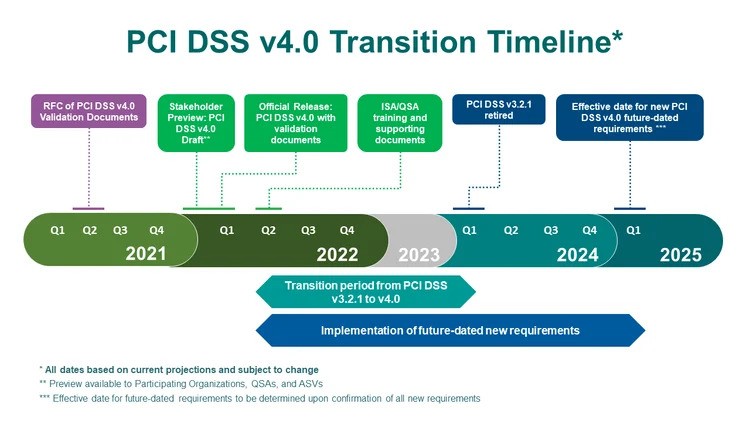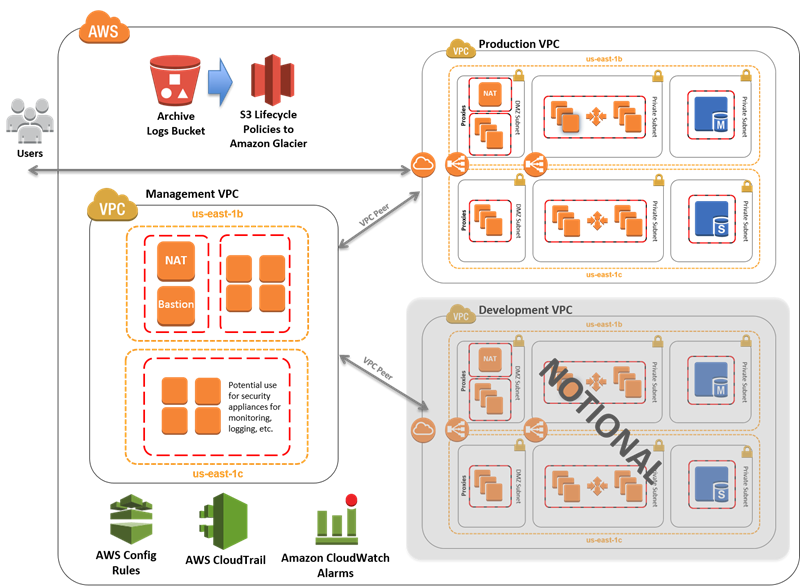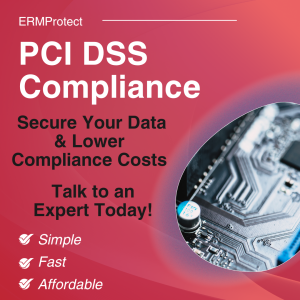How to Achieve PCI Compliance in the Cloud as Security Controls Evolve
By Rey LeClerc Sveinsson, PhD
The integration of cloud computing into the payment industry has brought forward new challenges and opportunities in adhering to security standards. This is particularly relevant in the context of the Payment Card Industry Data Security Standard (PCI DSS), especially with the advent of its latest version, PCI DSS v4.0.
This version reflects significant updates tailored to the evolving needs of digital payment systems and the increased adoption of cloud technologies.
Understanding PCI DSS in the Cloud Context
As cloud computing continues to transform the business world, becoming a central element in how companies store and process data, its impact on the payment industry is significant and complex. The integration of cloud services with PCI DSS compliance is particularly crucial for enterprises that handle sensitive payment card information.
The cloud's scalability and flexibility, while beneficial, introduces specific challenges in data security and compliance. To address these challenges, the PCI DSS has evolved to accommodate the unique security risks posed by cloud environments. This evolution is aimed at ensuring that all entities involved in the payment process can maintain a secure environment for cardholder data, even when leveraging the cloud's vast resources.
The latest updates to the PCI DSS standards reflect a deeper understanding of cloud computing's intricacies. These updates are designed to provide clear guidance on how to secure cardholder data within the cloud and ensure compliance with rigorous security measures. For instance, the standards now cover enhanced requirements for encryption, access control, vulnerability management, and continuous monitoring specifically tailored to the operational models of cloud computing.
This focus ensures that regardless of where the data resides—whether on physical servers or in virtualized environments—organizations are equipped to protect sensitive information effectively. By establishing thorough guidelines and compliance requirements for cloud security, the PCI SSC is helping to mitigate risks and enhance trust across the entire payment ecosystem. These efforts not only support the security of traditional on-premises environments but also address the dynamic nature of cloud services, facilitating a secure transition to cloud-based payment processing platforms.
The flexibility introduced by PCI DSS v4.0 is particularly crucial for cloud services due to the diversity in deployment models — ranging from public and private clouds to hybrid and multi-cloud environments. Each of these models presents unique challenges and risk profiles, requiring tailored security controls rather than a one-size-fits-all approach. PCI DSS v4.0 acknowledges this need by providing frameworks that allow businesses to custom design their security measures to fit their specific cloud configurations.
Specific Changes Impacting Cloud Environments
- Customizable Implementation: PCI DSS v4.0 allows organizations to implement custom controls that meet the standard's intent, giving them the liberty to use innovative and more suitable technological solutions that align with their specific cloud infrastructure. This adaptability is crucial for leveraging cloud-specific technologies such as virtualization, containerization, and dynamic provisioning.
- Integration with Cloud Security Best Practices: The new version of PCI DSS encourages integration with established cloud security best practices and frameworks, such as those recommended by the Cloud Security Alliance (CSA). This helps ensure that security controls are up to date with the latest advancements in cloud technology and risk management.
- Enhanced Control over Cloud Data: With an increased emphasis on data protection, especially in the cloud, PCI DSS v4.0 includes stronger requirements for encryption and tokenization both at rest and in transit. This ensures that sensitive payment information is safeguarded throughout its lifecycle, irrespective of the cloud service model (IaaS, PaaS, SaaS) being utilized.
- Accountability and Transparency from Service Providers: The updated standard demands more rigorous evidence of compliance from cloud service providers. This includes detailed documentation and transparency in security practices, enabling businesses to verify that their cloud environments adhere to PCI DSS requirements effectively.
Implications for Cloud Security Strategy
For businesses operating in the cloud, PCI DSS v4.0 necessitates a reevaluation of existing security strategies to accommodate these new flexibilities and requirements. Organizations must work closely with their cloud service providers to ensure that the implemented security measures are robust, transparent, and compliant with the updated standards. This collaboration will be key to navigating the shared responsibility model of cloud security, where both the provider and the client play integral roles in protecting cardholder data.
The adaptation of PCI DSS v4.0 to better fit the complexities of cloud computing demonstrates a significant step forward in aligning industry-standard security practices with the rapid advancements in cloud technologies. This alignment not only aids in maintaining rigorous security standards but also supports the innovative use of cloud services in processing payment transactions safely and efficiently.
Key Changes in PCI DSS v4.0 Relevant to Cloud Computing
- Customized Implementation Options: PCI DSS v4.0 allows for more tailored security measures that fit the diverse and dynamic nature of cloud environments. This means businesses can implement security controls that are specifically designed for their cloud infrastructure, enhancing effectiveness and efficiency.
- Enhanced Focus on Authentication and Encryption: Given the nature of cloud computing, where data is often transmitted across various networks, PCI DSS v4.0 places a stronger emphasis on robust authentication practices and advanced encryption methods to secure data transfers.
- Emphasis on Continuous Risk Analysis and Management: The dynamic capabilities of the cloud require ongoing risk assessments. PCI DSS v4.0 mandates continuous risk analysis to identify and mitigate threats promptly, which is vital in cloud environments that can change rapidly.
- Accountability of Cloud Service Providers: The updated standards increase the accountability of service providers, urging them to be transparent about their security practices and ensuring they meet the rigorous demands of PCI DSS.
How AWS Facilitates PCI DSS v4.0 Compliance
Amazon Web Services (AWS) provides a robust framework that aligns well with PCI DSS v4.0 requirements, offering tools and services that facilitate compliance:
- Customizable Security Solutions: AWS offers an extensive array of services that can be configured to meet specific PCI DSS v4.0 requirements, such as Amazon VPC for secure networking or AWS IAM for detailed access control.
- Advanced Authentication and Encryption: Services like AWS Cognito and AWS KMS provide advanced solutions for user authentication and data encryption, essential for protecting sensitive payment information.
- Integrated Risk Management Tools: Tools such as AWS Shield and AWS WAF help manage and mitigate risks in real time, aligning with the continuous risk management approach mandated by PCI DSS v4.0.
- Comprehensive Compliance Support: AWS Artifact and other compliance documentation tools offer essential resources for understanding and implementing necessary security measures in line with PCI DSS standards.
Implementing PCI DSS Compliance on AWS
For enterprises utilizing AWS, aligning with PCI DSS involves several steps:
- Gap Analysis: Conducting a thorough gap analysis to determine the current state of compliance and identifying areas where AWS tools can enhance security measures.
- Service Implementation: Prioritizing and implementing AWS services that address specific gaps in compliance, such as utilizing AWS CloudTrail for logging and monitoring or AWS Config for resource configuration tracking.
- Continuous Compliance: Establishing routines for continuous monitoring and updating security measures to adapt to new threats and changes in PCI DSS requirements, utilizing AWS’s scalable solutions to maintain compliance over time.
AWS for PCI DSS Compliance
Leveraging AWS for PCI DSS compliance provides organizations with powerful tools to meet rigorous security standards effectively. With its comprehensive suite of customizable services, advanced security features, and robust compliance support, AWS is pivotal for enterprises aiming to safeguard payment transactions in the cloud.
By strategically utilizing AWS services, businesses can not only meet current compliance requirements but also prepare for future security challenges in an ever-evolving digital landscape.
PCI DSS Compliance with ERMProtect
ERMProtect can significantly assist organizations in managing their PCI DSS assessments within the AWS Cloud environment. Here’s how they can help:
- PCI DSS Gap Analysis: ERMProtect can perform a thorough gap analysis to identify discrepancies between the current security measures in place in the AWS Cloud environment and the PCI DSS requirements. This analysis helps pinpoint specific areas where improvements are needed to achieve compliance.
- Customized Compliance Solutions: Given that AWS allows for a flexible and customizable setup, ERMProtect can help tailor security measures that align with both the unique aspects of your AWS infrastructure and the stringent requirements of PCI DSS.
- Implementation and Optimization of AWS Security Features: ERMProtect can guide the implementation of advanced AWS security features that support PCI compliance. They can ensure these tools are configured correctly to maximize security and compliance.
- Continuous Monitoring and Management: Leveraging AWS tools, ERMProtect can set up continuous monitoring systems to track and manage security threats in real-time.
- Training and Knowledge Transfer: ERMProtect provides training sessions and workshops to educate your staff on PCI DSS requirements and how to maintain compliance in the AWS environment. This training ensures that your team understands how to effectively use AWS tools and services to meet compliance needs.
- Incident Response and Forensics: In the event of a security incident, ERMProtect can assist with incident response activities in the AWS environment. This includes utilizing AWS tools to quickly identify the source of the breach, limit the damage, and recover from the incident, all while maintaining forensic evidence in line with PCI DSS requirements.
- Compliance Documentation and Reporting: ERMProtect can help document all compliance efforts and generate reports required for PCI DSS audits. This includes using AWS Artifact for accessing compliance-related reports and AWS Audit Manager to automate the gathering of evidence needed to demonstrate compliance during audits.
By partnering with ERMProtect, organizations can efficiently navigate the complexities of achieving and maintaining PCI compliance in the AWS Cloud, leveraging their expertise to enhance security measures, manage risks, and ensure continuous compliance monitoring.
If you are interested in a free one-hour consultation on PCI compliance in the Cloud, please contact [email protected] or call 305-447-6750.
About the Author
Dr. Rey Leclerc Sveinsson is an expert in Privacy and Data Protection, Information Security, and Technology Governance, Risk & Compliance (IT GRC). He has developed information assurance programs for major organizations globally during his career as well as serving as a Consultant for ERMProtect. He has a PhD in Information Systems and multiple master’s degrees in the areas of privacy, information technology, and cybersecurity laws.
Intelligence and Insights

Quantum Computing Puts Today’s Encryption at Risk

Are You Prepared for an AI-Powered Cyber Attack?








